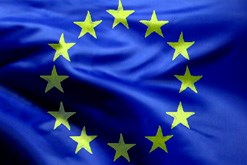- Published: 18.10.2007.
EU aims to transfer freight transport from roads to railroads and sea
The European Commission adopted on Thursday a series of initiatives aimed at making freight transport in the EU more efficient and sustainable. Supporting the transfer of freight transport from roads to railroad and waterway transport which are less dangerous for the environment
"Europe needs efficient, integrated transport alternatives that are both environment-friendly and user-friendly”, stated Jacques Barrot, Commission Vice-President with special responsibility for transport. “The measures which I have presented today will also make rail, maritime and inland waterway transport more attractive and more competitive in the context of co-modality. The integration of these modes of transport into efficient logistic chains is essential in order to reconcile the economic efficiency and long-term development of transport".
Freight transport is essential for the competitiveness of the European economy and for the quality of life of EU citizens. It is estimated that the volumes of goods transported in Europe will increase by 50% between 2000 and 2020. In the years ahead, freight transport must address the challenges of efficiency, quality and sustainability. It will therefore need to come up with suitable responses to the problems of congestion, climate change (freight transport is responsible for one third of the CO2 emissions arising from transport), and energy supply and security. At the same time, the new information and communication technologies and the influence of European freight transport on the global market offer major opportunities for the future.
Given the steady increase in the efficiency of road transport, rail transport also needs to become more competitive. The Commission’s objective is to promote the creation of a European freight network on which freight transport could offer a better quality of service in terms of journey times, reliability and capacity. To supplement the measures already taken (such as the deployment of ERTMS on routes identified as having priority or the construction of major infrastructures for the trans-European transport network), the Commission is proposing new initiatives with a view to creating a European freight-orientated network in which the service will be more reliable and more efficient than at present.
The Commission is promoting maritime transport, which remains the mode that is the most environment-friendly and energy-efficient in terms of greenhouse-gas emissions. The simplification of administrative procedures for maritime transport within the EU is essential in order to make this mode of transport more attractive.


